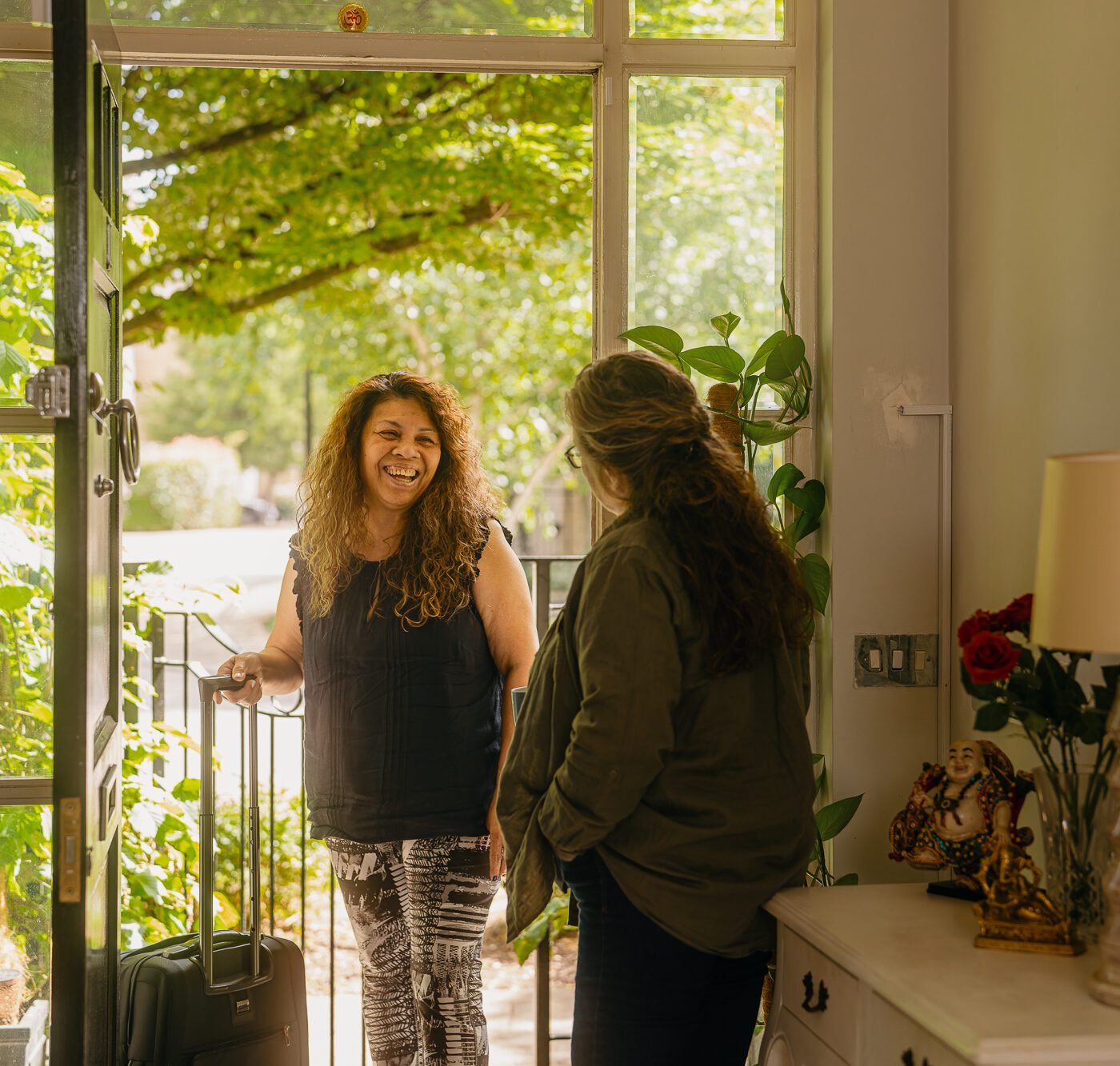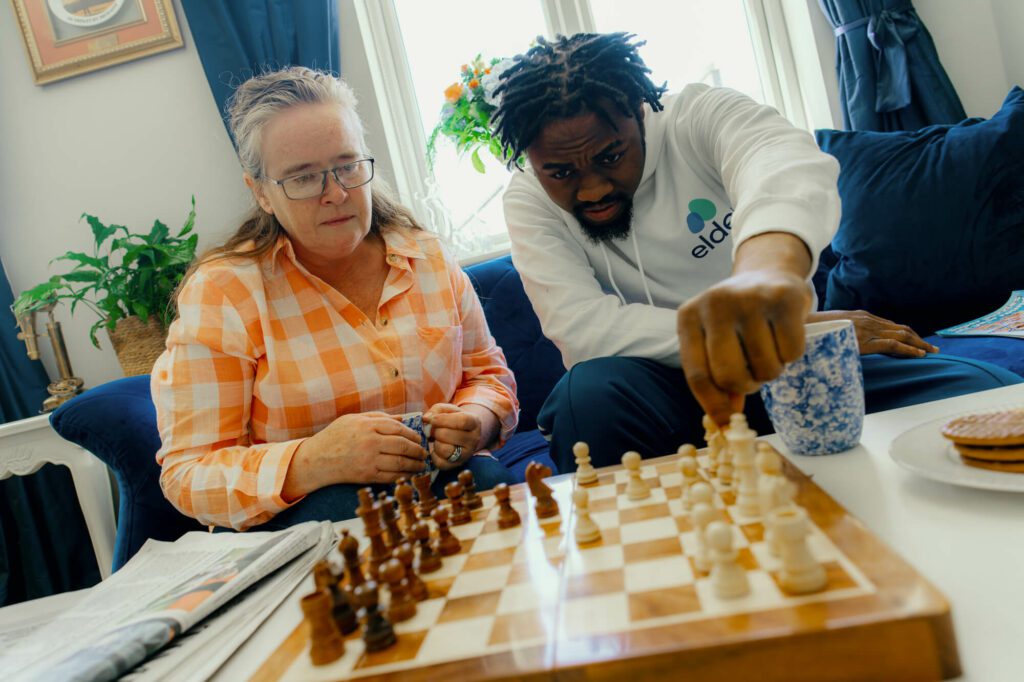How Elder works
Looking to arrange live in care or visiting care? From searching for a self-employed carer, to managing everything with your MyElder account, we’ve covered the essentials below.

More affordable
On average, services facilitated by Elder are 35% cheaper than traditional alternatives.
Keep your routine
Whenever and however you need it, you set the scope of your service.
Choose your carer
Pick your favourite self-employed carer from personalised matches.
5-star support
Use our platform to plan and manage care from anywhere, and chat to 5* rated support teams.
More value
On average, services facilitated by Elder are 35% cheaper than traditional alternatives.
More control
Whenever and however you need it, you set the scope of your service.
More choice
Pick your favourite self-employed carer from personalised matches.
More support
Use our platform to plan and manage care from anywhere, and chat to 5* rated support teams.
1. Give us a call or get started online
Give a care advisor and call on 0333 920 3648, or get started right now online via your free MyElder account.
2. Tell us what you need
Answer some simple questions to help us identify whether Elder is right for you, and to identify the best self-employed carers for your needs. We’ll begin matching you with potential carers over the next 24 hours.
Find out more about what self-employed carers can and can’t support with here.
3. Complete your care profile
While you wait, you’re free to fill in your optional care profile. This can provide your future carer with all the information they need to settle in well and work with you to provide truly personalised care.
If you’re facing an emergency, we can help you search for and secure a carer in 24 hours
4. Choose your carer
Review detailed profiles for each self-employed carer you’re matched with. Chat to the carers you like best before making your final choice and care arrangements. You can do this individually or as a family.
5. Get ready for the first day
Your agreement with your self-employed carer begins. We recommend having a follow up call to finalise details for the first day, such as arrival time and who’ll be at the home to meet them.
6. Manage care with MyElder
You and your family can control care from anywhere with MyElder. From reading carer updates and planning breaks and cover, to keeping crucial care information updated.

Our care advisors are here for you 356 days a year
Big care decisions need bespoke support. So, whether you’re ready to take the next step in finding a self-employed carer, or are just looking to learn more, give our friendly team a call.
What can a self-employed carer help with?
Self-employed carers on the Elder platform can provide personal care, household support and companionship. Your carer’s daily responsibilities will reflect the needs you’ve shared in your MyElder account.
While the self-employed carers on our platform have a wide range of skills, they’re not nursing professionals, and aren’t expected to tasks that are ‘nurse-led’.





Glucose readings via finger pricks, Injections, Pessaries, Enemas, Suppositories

I'm arranging live-in care, how do breaks work?
We know a lot of families like to keep their care schedule as consistent as possible. However, if your self-employed carer is providing on-going care, they’ll need to schedule some time off. They’ll arrange this with you directly to ensure it works for everyone. You can both do this easily via the Elder platform
Find out how this works in our quick guide here.

Read more about arranging care
From caregiver tips to starting difficult conversations, our guides can help you face tough topics with confidence.

Arranging care after a hospital discharge
Hospital discharge When your mum or dad is in hospital, certainties can be few and far between. From condition, outlook and discharge date, there are

Moving back home from residential care
Older people can move out of a care home for a variety of reasons. If they’d previously been in hospital their stay may have only

6 weeks free NHS intermediate care – what happens next?
What is the concept of intermediate care? Intermediate care services are essentially there to provide additional temporary care after a hospital discharge. These services aim

Care choices – Elder factsheet
We understand that starting your care journey can sometimes feel overwhelming, especially if you’re completely new to the world of care. We surveyed 1000 people

Talking about care – Elder factsheet
As one of life’s biggest decisions, we believe it’s vital for people to feel they can talk openly about their later life care, and recognise

Home from hospital – an Elder factsheet
The majority of us will likely receive some form of hospital treatment at some point in our lives. And, if you’ve ever been admitted to